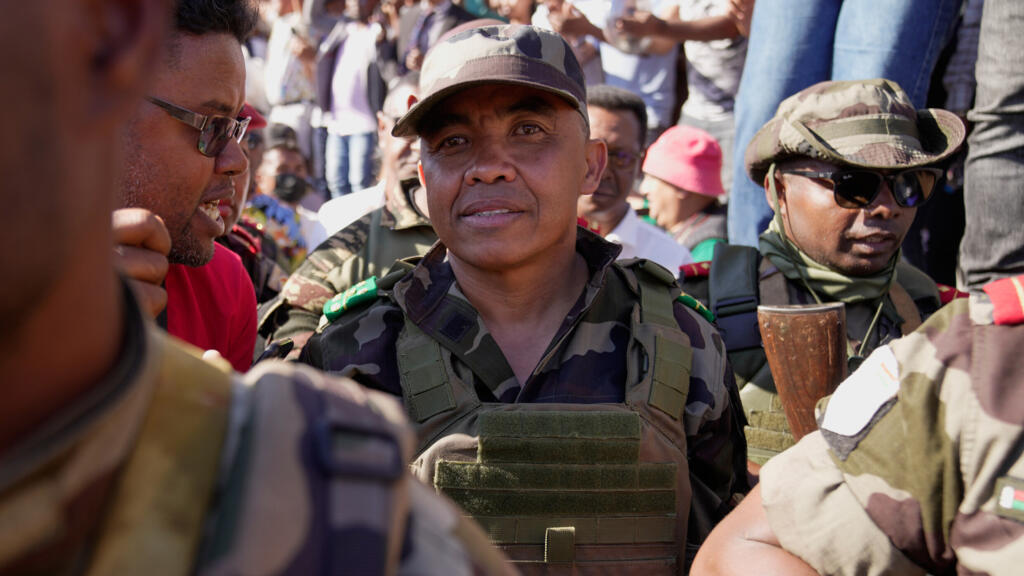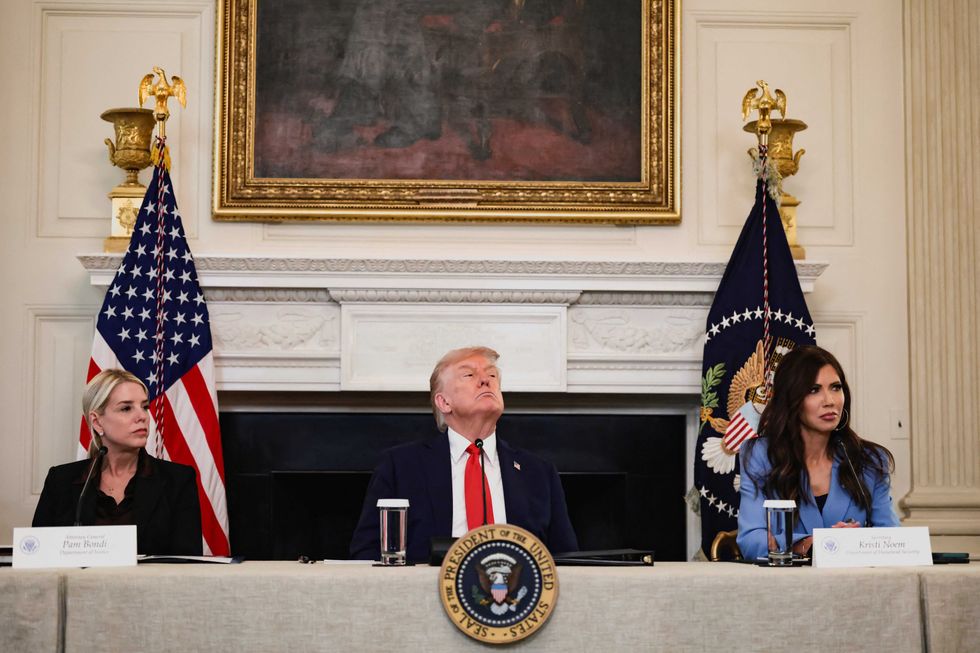ARTICLE AD BOX
AN ISRAELI pilot has told for the first time how he blasted Iranian drones out of the sky, describing his heartstopping mission as “Top Gun meets Star Wars.”
The F16 fighter pilot – identified only as “Major G” – joined British and US airmen thwarting carnage which could have triggered World War Three.
 Doug Seeburg
Doug Seeburg Doug Seeburg
Doug Seeburg Doug Seeburg
Doug Seeburg
He told The Sun of his exhilaration as he endured enormous G-forces while down targets among 320 Iranian missiles which could have killed thousands.
Major G said: “I used my plane’s radar, my eyes and all my training to seek and destroy as many targets as I could as quickly as possible.
“I knew these drones and missiles were heading for Israel and thought about my family and friends and the people we were protecting when I was up there.
“But once the targets came into view my training took over and I was focused on the mission.
“It happens very, very fast. You press the button, the missile goes out and it takes a couple of seconds before the target blows up.
“You see the trail and fire going all the way and you’re kind of holding your breath, hoping that it will actually hit the target.
“And then when you see that ball of fire – when it explodes – it’s just a great feeling.
“You’re at low altitude in the desert at night and it’s a very extreme situation with a lot of things blowing up around you.
“I don’t want to say the number but there were a lot of planes in the air and it was like nothing I’ve experienced before – like Top Gun meets Star Wars.”
Major G told how brave massive gravitational forces were as he hurled his 1,300mph fighter jet around the sky while chasing missiles and drones closing in on Israeli cities.
He said his body was subjected to huge stresses of up to “seven G” as he threw the jet into tight turns to lock onto targets.
Forces were such that the legs of his high-tech flying suit inflated and compressed to stop him from passing out when blood flowed from his brain.
The airman – a 40-year-old father-of-two who has another child on the way – told The Sun: “You’re fighting in a very aggressive way with a lot of G.
“You’re feeling that G – you’re feeling the speed – because sometimes you need very extreme manoeuvres to get to your firing position.
“It’s a lot of hard work with anything from two to probably six or seven G’s in this specific scenario.
“That’s when your blood is flowing down from your brain into your legs, and you kind of have to work hard to keep it there for a few seconds until you finish that manoeuvre.”
The Israeli top gun said he knew that British Typhoon fighter pilots and US aces were fighting alongside him in the darkness above Syria.
We flew together with US fighter pilots, with British fighter pilots, and pilots from other countries and the cooperation was amazing
Major GAnd he saluted the Brits who had trained with him on joint exercises for supporting Israel and The West’s stand against Iranian terror.
Major G said: “We flew together with US fighter pilots, with British fighter pilots, and pilots from other countries and the cooperation was amazing.
“We trained with the British fighter pilots, with American fighter pilots with French fighter pilots for years and it’s really proven itself – and I think we all win.
“We’re confronting a global threat defending the same set of values and we’re all fighting for the same cause.
“Even if right now that threat is aimed at Israel, it’s going to be aimed at somewhere else next time and we’ll fight it together.”
“It was dark and there was a lot happening so it was impossible to identify aircraft but we knew there were British typhoons up there with us and that was good to know.
“We were brothers in arms and I felt privileged that we were able to defend our country and our families in the most direct way possible – blowing up an aircraft on its way to blow up in Israel.
“There weren’t any tears when we landed but there were a lot of big smiles and a lot of hugging as it became clear we’d had big success.
“But you’d celebrate for two minutes then you’re taking off on the next one – there not a lot of time to be happy about it.
“But looking back this was an extraordinary effort by the air force the entire coalition – we couldn’t be more proud.”

 Doug Seeburg
Doug Seeburg A drone is launched at Israel from an undisclosed location in Iran
A drone is launched at Israel from an undisclosed location in Iran A downed Iranian ballistic missile lies on the shore of the Dead Sea
A downed Iranian ballistic missile lies on the shore of the Dead SeaLike many Israeli servicemen, Major G is a reservist on permanent standby to leap into his cockpit while holding down a successful career as a lawyer.
And the hard-working dad was back at his office desk by 4pm on Sunday straight after his exhausting 12-hour night mission to save his embattled nation.
He said: “It’s pretty incredible but this is not my day job.
“I’m actually a lawyer and as soon as I left this insane battle I was back at work the next day in the office.
“When I got home I saw the pride in my wife’s eyes and that was a pretty emotional moment.
“She felt safer than the night before so knowing and knowing you make a difference in people’s lives and make them safer in their own homes is why we do this.”
UK Foreign Secretary David Cameron met Israeli PM Benjamin Netanyahu President Isaac Herzog yesterday/today and declared it was “clear” Israel was about to strike back.
Urging a measured response, he said: “It’s right to have made our views clear about what should happen next, but it’s clear the Israelis are making a decision to act.
“We hope they do so in a way that does as little to escalate this as possible – and in a way that is smart as well as tough.”
An Israeli counterattack could now be given the green light within hours as Netanyahu’s war chiefs mull attacks on both Iran itself and its terror comrades in Yemen and Lebanon.
Iran has vowed to hit back with an attack “ten times” the size of Saturday’s if Israel dares to retaliate amid fears of a World War Three escalation.
'A weapon never used before'
WEAPONS expert Colonel Hamish de-Bretton Gordon told The Sun that Iran was likely threatening a nuclear, chemical or biological attack.
But how likely would Tehran be to act on those threats or even be able to pull that kind of attack off?
A NUCLEAR STRIKE
De-Bretton Gordon said: “When the Iranians say they have a new weapon that nobody has seen before, people immediately think it’s nuclear.
“We know they’ve been trying to enrich uranium. We think they’re about 80 at the moment, and you need 90 plus to make a viable nuclear weapon.”
With that knowledge, “I think it is pretty certain that at the moment the Iranians don’t have a viable nuclear device.”
A DIRTY BOMB
Instead, he suggested they could use its missiles capable of delivering a nuclear warhead refitted with a dirty bomb – an explosion that scatters radioactive material.
However, the last few days, the expert said, “have proved Iran is unable to deliver a missile or a drone to Israel” so they “cannot guarantee it” they could deliver a dirty bomb.
Iran could, however, deliver fissile material to Tel Aviv or Jerusalem to let off a dirty bomb. “But this is very difficult. One thing about nuclear material is, it’s relatively easy to detect.”
CHEMICAL WEAPONS
Iran could be thinking about a potential chemical weapon. But Colonel de-Bretton Gordon said: “We haven’t seen the Iranians use chemical weapons for a long time since the Iraq War from 1984 to 88.
“But the fact that we’re seeing Russia using chemical weapons in the form of CS gas in Ukraine at the moment with success could mean that is a potential for Iran.
“But I then how do they do it? How would they deliver it?”
The expert said missiles and drones are now clearly out of the question and Iran’s fleet of fighter jets “are highly unlikely to get close enough to Israel to be able to do it”.
A BIG BLUFF
De Bretton-Gordon argued Iran is “desperately concerned” about Israel’s reaction to their drone and missile barrage and looking for a way out by threatening escalation.
He said: “The Iranians seem to be very much on the back foot, saying, ‘It’s all over. Now let’s draw a line under it’.
“I can’t see that the Iranians have a viable chemical, biological, or nuclear weapon with which to attack Israel with.”
 An Iranian military truck carrying missiles during the annual army parade in Tehran today
An Iranian military truck carrying missiles during the annual army parade in Tehran today
.png)
 1 year ago
14
1 year ago
14








 English (US)
English (US)